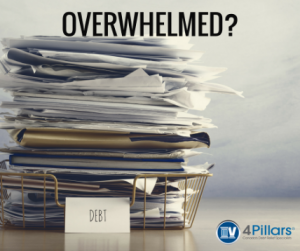
Early indications of 2020 numbers (that is, before the COVID-19 crisis hit) mentioned that bankruptcy and insolvency numbers would be at an all-time high. However, since March and over the next couple of months we are likely going to see a large decline in projections. Normally a decline in bankruptcy numbers is a positive and something that should be celebrated. Not this time, and here is why:
People cannot afford to file for bankruptcy or undertake other debt relief options.
I know, this sounds ridiculous but, in many cases, it is true. When we refer to bankruptcy, we are generally referring to ‘insolvency’ and the remedies under the Bankruptcy and Insolvency Act (BIA). For ease of reference in this article we refer to insolvency as including both proposals to creditors as well as bankruptcy.
COVID-19 has changed everything we previously worried about. People are less worried about missing a payment on their credit card – instead, they are more worried about putting food on the table. Millions of Canadians have been forced into financial survival. Priorities have become the necessities and dealing with an insolvency event is currently an unnecessary expense. Although the insolvency system is designed to reduce financial stress and increase cash flow, this does come with a cost and a commitment to a monthly payment. As many people are utilizing the payment deferral options available from creditors, bankruptcy/insolvency at this time would mean a monthly payment. We often talk about prioritizing ‘needs’ and ‘wants’ when creating a budget. Right now, for many, insolvency falls in the want’s column not the needs column. Despite knowing the overwhelming debt is not going away and will get worse, it is not a priority. The priority is the need is to pay rent and put food on the table. With banks providing payment deferral options and collection activity grinding to a halt, for many, this is the respite they need to focus on what is truly important. That is, the health and safety of their family.
Reports are predicting a decline in insolvency filings of up to 50% over the coming months followed by a significant increase in insolvencies. This could put a huge strain on the system to process them all.
Our fear for those facing future insolvency.
The volume is going to be overwhelming for those companies tasked with administrating insolvencies. Dues to the current decline in insolvency numbers licensed insolvency trustees and other debt solution providers may be needing to lay off key staff. This will then result in a need to rehire staff or hire new staff when the wave hits. This will place an additional strain on the system to provide timely insolvency options.
This could result in administrators becoming highly transactional and more focused on the administration duties rather than the needs of the debtor. The danger becomes one size fits all solutions being offered vs a tailored plan to meet the individual needs of the debtors.
Now, more than ever it is going to be imperative for those needing additional support to obtain their own representation. To have their own advocate to push for solutions that resolve short term financial crisis and build a plan for a stable financial future.
For many licensed insolvency trustees, the focus will likely have to be on how to handle demand for insolvency and the administrative challenges that lie ahead. However, we believe the needs of the debtor must remain the highest priority. 4 Pillars is a very proud member of the Canadian Debtors Association ( www.debtorsvoice.org ) who will provide a much-needed voice for debtors when they will truly need it the most.
Bite the bullet and do it now if you can.
With many of the banks offering much needed mortgage and payment deferrals, the natural temptation is to wait. The deferrals are an absolute necessity to help struggling individuals increase cash flow. It is critical to remember the programs are not debt forgiveness and interest will still accumulate. When the payment deferrals are lifted, the result will be higher debt loads and increased monthly payments. But don’t be fooled by deferring payments as interest on the balance continues to accumulate throughout the deferral period.
This means already unmanageable debt will be more overwhelming. Debt servicing payments that already pushed the family budget to its limits will increase. The standard pattern we see is people trying to manage the crisis by taking on more debt. Usually the only debt they qualify for is high-interest debt and payday loans. This may then delay the inevitable by another couple of months. By which time you have now managed to successfully delay dealing with your debt by possibly taking on new debt and utilizing the deferral programs for 6 months or longer. This means:
- 6 months of additional financial and emotional stress
- 6 months of increasing debt levels
- 6 months delay in rebuilding your financial future
- 6 months before you can begin rebuilding your credit score and creditworthiness
Besides, dealing with your debt now may have the following benefits:
- Increased leniency by the creditors on settlement terms
- Quicker access to the services you need
Resolving a personal financial crisis comes in many different forms and does not always require insolvency. Knowing all your options is imperative and you must not settle for the first solution offered. Remember, the danger we potentially face is the industry may get very transactional and companies will be pushing highly profitable, quick to administer solutions.
Even if you are unable or not ready to resolve your debt now, learn all your options and have a plan in place. Preparation and planning can be a great stress reliever.
All 4 Pillars locations are ready to help you review all your options by phone, Skype, video conferencing and offer impartial advice to resolve debt on your terms.


